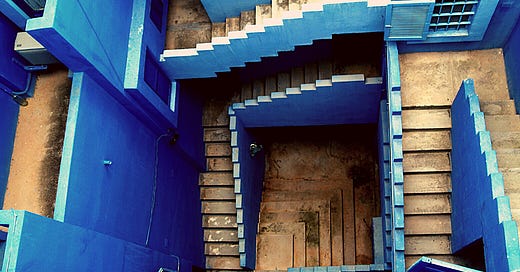When I was in fifth grade, I won a treasure hunt contest.
We were given an initial clue by the teacher, with one puzzle leading to another clue.
The clues were a variety of riddles, math problems, logic puzzles, and various other siren songs for my brain that was all too ready to be tempted away from such pedestrian activities as “paying attention” or doing work not of my own choosing.
I solved the clues and made my way to the end before anyone else, earning myself a candy bar and a certificate of accomplishment with my name printed right on it.
If memory serves, I also won the contest in sixth grade. (It is possible that I was the only one playing). At the time, such achievements were wind under the sagging kite of my self-confidence which, for a many reasons, was rapidly sinking in the threshold years of junior-high.
On my mythological search for identity
Ever since, I have always considered myself good at brainteasers, logic, and crossword puzzles.
However, in recent years, I’ve wondered if maybe I've simply tried to convince myself that I'm good at them because I desperately wanted to be good at something.
These adolescent achievements, such as they were, shone brightly as evidence for whatever mythological identity I was trying to construct for myself, like a beacon in the foggy night of self-invention.
Some years ago, after solving the New York Times Sunday Crossword Puzzle several weeks in a row — without any help from anyone and without peeking at the answers or looking anything up on the emerging resource known as The Internet — I convinced myself that I should be in Mensa.
I proudly bought a Mensa book that I found on the bargain table at Barnes and Noble. I worked my way through some of the practice tests, but I’ve never done well under the pressure of time limits. It did not require extraordinary powers of logic to conclude that I’d overestimated my relative position of intelligence.
Perhaps I was, after all, what I’d always feared most: average. I put the Mensa book away and consoled my bruised ego by telling myself there were worse fates.
The trouble with reading my personal treasure map
I find, though, that I’m still on a treasure hunt of sorts. I can see the “X” on the map, but I don’t really know what it represents, and there is no clear path toward it.
It’s no ordinary map. It’s not a map that can be consulted for straightforward directions and then easily folded back up again to be shoved into a drawer until needing to be found again for the next journey.
This map is in front of me all the time, but it has infinite dimensions and no boundaries. There is no key for the various symbols that I can only assume must mean something. The ever-present “X” bounces around to different locations, changes color and shape, expresses itself in various typefaces and font sizes.
There are no black-and-white puzzles to solve to reveal the next step in this never-ending quest.
But there is one notion I’ve been trying to convince myself of, suggested by intuition and experience, and backed-up by countless sages and prophets through the ages.
It’s striking in its simplicity.
That the real “X” is under my feet, no matter where I stand.
If true, that would be some treasure!








Every time I read something you have written I find myself in your words. Thank you!!